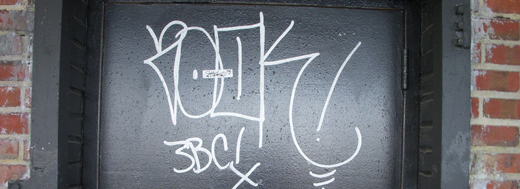Weekend Update (Friday Edition): Aztecs
Friday, October 16th, 2009
When I looked at the program, my short hairs stood on end. They were playing K 563, and I almost didn’t go.
If I were a Renaissance pope, but in a world of music, not Christianity, I would found churches everywhere in honor of my favorite saint, Mozart’s Trio in E-flat for Vioilin, Viola and Violoncello. In that alternative world, I might hear my desert-island music more often. Mozart called it a “divertimento,” and yet it’s very difficult to play. That puts it at the North Pole of the Mozart-Liszt axis. Mozart wrote difficult music that sounds very straightforward and easy. It’s no wonder that more virtuoso reputations have been made playing Liszt, who wrote relatively straightforward music that sounds fiendishly difficult. It’s all very nice to have aficionados in the audience who know the score, but they’re never going to be numerous enough to fill Carnegie Hall. Or even Grace Rainey Rogers.
I did go, though. I was there, I mean. I was there, and the MMA Artists were going to play Köchel Werke Verzeichnis 563. I couldn’t believe that all I had to do was hang around until after intermission. I expected an interfering inconvenience  of some kind; when you’re my age, you just do. But I was fine. Considering that I was alone — Kathleen is in North Carolina this weekend, counting the silver (to make sure that her mother didn’t take any of it with her) — I was about as happy as it’s possible to be, in an unexcited, no-big-deal sort of way. I went a bit early, because it dawned on me that, on a Friday night, when the Museum stays open late, there are things to do, or at least to look at, if you arrive in plenty of time. I walked in and immediately felt that I owned the place. In a way, I did. Nobody, as we lawyers say of easements, had a better right to be there than I did.
I went and had a good look at The Milkmaid. I felt that I’m beginning really to like this picture, even though I have a thing about glamorizing servants. (It’s a sin against them, really.) It was very clear to me that I’d take The Milkmaid any day over the later and “more accomplished” Young Woman With a Water Pitcher — a painting that got a very notable second-best boost from Girl With the Pearl Earring. The Young Woman is mine — ours — the Museum’s, but that doesn’t influence my judgment. Good heavens, no; I’m actually praing that the Museum will sell the painting that is undoubtedly Vermeeer’s worst (what was he thinking?): the Allegory of Faith. (Even though I’m very fond of the tapestry curtain in the foreground.) My favorite Met Vermeer, more and more, is Woman With a Lute.
I almost bought Walter Liedtke’s plush monograph on Vermeer. I want it, certainly. But we’ve been spending money like water here lately, buying all the little things that will “pull the apartment together.” I doubt that Liedtke on Vermeer (as the book would have been called in more learned times) is going to go out of print anytime soon. I bought some postcards, and that was that.
Liedtke, by the way, speculates that the Woman With a Lute is waiting for a man to join her — a man with whom the spectator might identify. This seems truly peculiar to me. I see a woman who’s having a good time playing music in cloudy weather. I don’t see myself in the picture at all. Happily, I can’t possibly interrupt the music.
I had a choice of routes back to the Great Hall, which I would have to cross, in order to get to Grace Rainey Rogers Auditorium, where Edward Arron and his colleagues would be playing chamber music. (That was all that I knew; I hadn’t bothered to check out the program ahead of time. I’d bought the tickets months ago. That’s why I almost didn’t go. In a perfect world, there would be no need to buy anything ahead of time; you could just wait to be in the mood.) I could go through the Medieval Hall or through the Greek and Roman Galleries. I was in the mood for Greek and Roman, but, in the event, I never paused to look at anything there, because, in order to reach Greek and Roman, I had to pass through the multi-purposed wing that, for the moment, I’ll call “Aztec.” This is a part of the Museum that I don’t know at all, and am indeed unpardonably sniffy about. But I was feeling expansive. Someone I knew might want to see something in these galleries, and I ought to know where they were (call me Teddy Wharton). I was feeling so comfortable and pleasant and mentally enlarged that I decided to do the Aztecs a favor, and have a look at them. Horrible to put it that way, but, in the end, that’s what living with art comes down to, and don’t let ’em tell you otherwise.
Because it’s way past my bedtime, I am not going to chatter about the Aztecs. The gold items were luminous and intriguing, but they were also impossible to look at without thinking of Indiana Jones… The silver items, however, were very fresh. There are two vases — not intended as such, perhaps, but that’s what we’d treat them as — that really ought to be copied by Tiffany; I’m sure they’d sell like hotcakes. Very simple, very Thirties — only, better than Thirties. You have to see them. Of course, I do live under a rock. It’s entirely possible that Renny Reynolds and Robert Isabel cloned them decades ago, and that, even as we speek, Palm Beach hostesses are trying to persuade their housemaids to accept them as bonuses. As you can see, though, my visit to the Aztecs was not without interest.
I’d thought that I’d have dinner somewhere afterward; I’d even brought reading matter to sustain me at a table for one. I ended up coming home, though, and making spaghetti alla carbonara. What I really wanted was the roast chicken at Demarchelier, but, when I passed by, the restaurant seemed not only packed but attitudinal. What can I say? I’m always comfortable at La Grenouille, one of the grandest restaurants in the world, but Demarchelier persistently reminds me that I live on the wrong side of Lexington Avenue. And Third Avenue. And Second Avenue! Turn the glass over, and I live on the wrong side of East End Avenue as well. Demarchelier is an Upper East Side restaurant. I live (four blocks away) in Yorkville. Maybe the Aztecs had exhausted my cultural imperialism.
But I’m just like you in this respect, I had as good a right as anybody to check out the Aztecs.





















